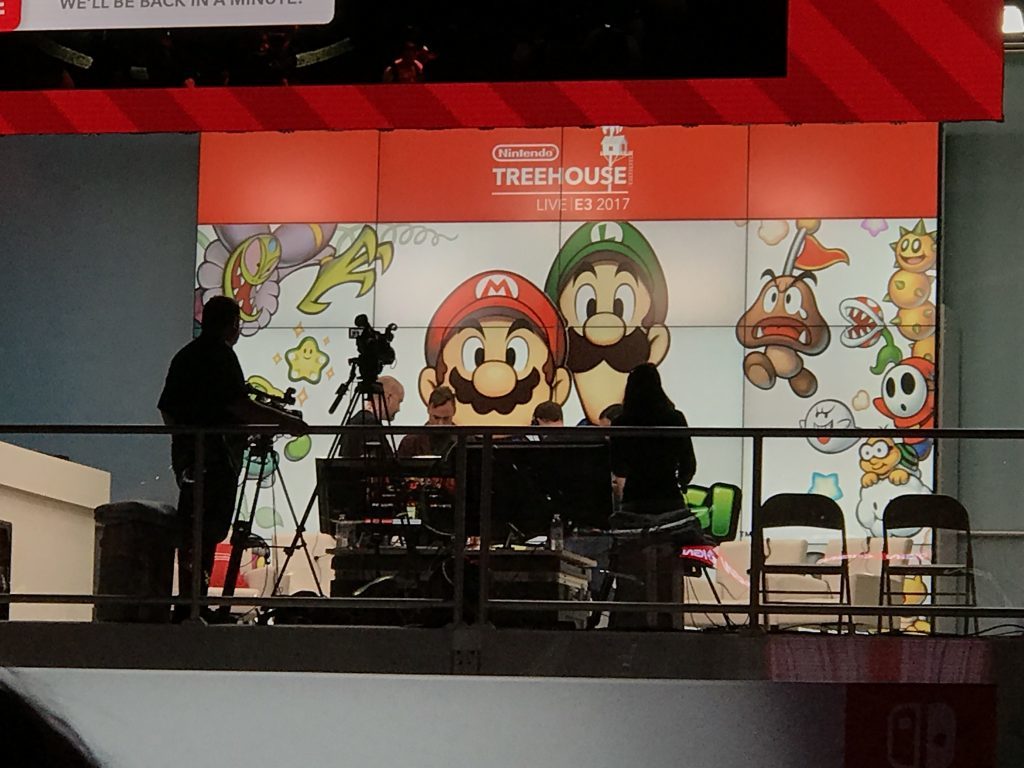Many of the 15,000 consumers that packed E3 last week spent hours standing in line to play Nintendo’s Super Mario Odyssey. The game was a unanimous best of show winner across a variety of mainstream and gaming sites. Additionally, it’s just one in a strong line-up of Nintendo Switch titles that has propelled the console on a successful trajectory of over 1.2 million units sold in the US and over one million sold in Japan. In fact, Nintendo is having trouble keeping up with demand for the system and has recently increased its manufacturing output to try to keep up.
AListDaily sat down with Doug Bowser, senior vice president of sales and marketing for Nintendo of America, to discuss the Japanese company’s turnaround since launching the Switch.

What are your thoughts about the role of E3, now that the public is attending?
Nintendo fully supports E3 and the ESA and we have a strong presence here. E3 is still, in our opinion, the number one video game show in the world because it’s the first time everyone in the industry gets to premier all their content as we look to 2017 and beyond. E3 is constantly evolving with the choices that EA has made, and the choice we made this year to bring 15,000 consumers in. We’re learning from it, but it is an extremely important milestone within the video game calendar year.
Nintendo has been leading the way by directly addressing to its consumers via Nintendo Direct and Nintendo Spotlight livestreams. How has that opened things up from a marketing perspective?
One thing that has changed with our presence at E3 is we don’t do a big stage show anymore. We stopped doing that five years ago. We’ve used Spotlight videos, which is as affective a way to communicate to the masses. And then we focus our energy on the floor and let people come engage in the content and create an open environment with as many kiosks as possible for people to engage in. We also ran Treehouse for most of the day, which is a great direct streaming opportunity to everyone that’s not here on the floor. It provides a chance to get much deeper into the content.
What role does esports or competitive gaming play for Nintendo?
In our mind, the definition of esports is pretty broad. It can go from one end of the spectrum—which I would call underwriting sponsorships, team support, etc.—to the other end of the spectrum, which is just fun, competitive multiplayer gaming. I would say we’re really trying to promote fun, competitive multiplayer gaming. We’ve obviously had a few tournaments at E3 with ARMS, Splatoon 2 and Pokkén Tournament DX going on. And we’ve been involved in esports competitions in the past with Smash Bros. at E3 and Comic-Con. Two years ago, we had the Nintendo World Championships at E3. But that’s not to indicate that we’re planning to get into esports as many people are defining it. It’s just that we want to be able to promote some great games that we think have an ability to be fun and competitive and that you can play on the couch with your friends and family—and/or they could be introduced to other esports venues potentially down the road.
Do you think E3 has offered a way to test the waters for new esports titles?
Exactly, ARMS is brand new and that tournament was a great way to show its depth because, quite honestly, it is a very deep game with a lot of strategy involved with the way you can structure your fighter.
How does esports impact Nintendo developers as they create new titles like ARMS or Splatoon 2?
I don’t know that we designed the games with an esports end-game in mind. It’s more that we know that players like these type of fun, competitive games, and we’re looking for different ways to design games that meet that need or desire, so you see that. To your point, in Splatoon, it’s a very different way to have a combat turf war. ARMS introduces more of a fighting mechanic, but it’s fun, it’s competitive. Then Pokkén Tournament DX has an orientation more like a Smash Bros. in terms of its gameplay style. So, it’s more that we want to create a variety of different competitive games.
Last year, some people were counting Nintendo out after the Wii U, but the Switch is clearly an early hit. What went right this time?
Well, we’re pleased with the results so far. There clearly is a demand for the product and we think it’s a combination of factors. First of all, it’s the uniqueness of the platform itself in that it’s a home console that you can pull out and take on the go and play in a variety of different styles. Then there’s the ability to play in different modes with different controllers and with different numbers of players. When you get to the portable nature of it with Tabletop Mode, you can stack a number of Switches around the table so everyone can compete against each other with different perspectives either on one device, or each on their own respective devices. That unique playing proposition is what’s been driving the demand to this point, and then it’s about great content. It started with Legend of Zelda: Breath of the Wild, which was attaching pretty much one-to-one to every unit sold, and then it continues on with the titles we’ve launched since then like Mario Kart 8. So, it’s that combination of unique hardware proposition with some great games that people are looking forward to playing
EA has a separate team working on a special FIFA soccer game for Switch. How is the early success of Switch getting third party publishers interested?
Back in February, we announced we had 70 developers or publishers building 100 games. Since that time, each of those numbers has more than doubled, and it runs the gamut from indies all the way to major publishers. At the E3 press conferences, with the exception of Sony, everyone mentioned Nintendo Switch. Even our friends at Microsoft talked about some of the cross-play opportunities. That’s an indication of support, and we thank them and we look forward to it.
What’s the marketing messaging for Nintendo now?
Well, it’s about a couple of things. It’s definitely Super Mario Odyssey, which was the main focus of the floor and will be a large game for us coming out on October 27. But our booth had Splatoon 2, ARMS, Pokkén Tournament DX, Ubisoft’s Mario + Rabbids: Kingdom Battle. We had FIFA set up to show folks the different game styles for in-home or an on the go. We had a nice variety of titles we wanted to show because it’s not just about Super Mario Odyssey. But that will be a large one. We want to communicate to folks that we’ve got this steady cadence of titles, both first party and third party, coming throughout the rest of the year and beyond.

